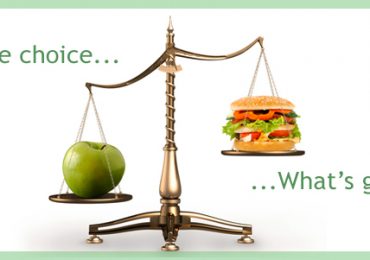
Do you often eat until you feel stuffed?
Do you frequently indulge in your favourite food when stressed out?
Do you crave food and literally can’t think of anything else?
Do you want to dig in even when you are not hungry?
Do you feel powerless or out of control around food?
Do you indulge in your favourite food only because it is available?
Well, these are the significant signs for emotional eating, which result in increased weight or obesity.
Do you know?
Only 1% of the world’s population has been able to lose over 15 kilograms and sustain a weight loss over 5 years. One of the most important reasons why people aren’t able to sustain the weight loss is emotional eating.
How to identify emotional hunger:
- Emotional hunger comes suddenly
- Emotional hunger craves specific comfort foods
- It leads to mindless eating
- It doesn’t go away even when we are full
- Emotional hunger isn’t found in stomach but appears on mind
- It often leads to regret, guilt or shame
Common causes of Emotional eating:
- Stress
- Bottling up emotions
- Boredom
- Feeling of emptiness
- Certain childhood habits
- Social influences
- Celebrations
How to get over emotional eating?
Getting over emotional eating is mandatory because if it continues for long, it results in serious health issues. Below are the steps as how one can put a stop to it. Read on.
Nutrition: Having a balanced meal, which is low in GI and low in insulin generation, reduces “carbohydrate shocks” in the body, which in turn reduces cravings, physiologically and therefore reduces emotional eating.
Eat as per the hunger scale: The hunger scale ranges from-
- Physically faint
- Ravenous
- Fairly hungry
- Slightly hungry
- Neutral
- Pleasantly satisfied
- Full
- Stuffed
- Bloated
- Nauseous
NOTE: 1 is the highest form of hunger and 10 is the extreme condition of fullness
Know the difference: Calibrate yourself if the hunger is physical or emotional through methods that have been mentioned above.
Remind yourself: Put up stickers and notes in front of your snack cupboard/refrigerator/of other favourite food storage area:“Am I really hungry or do I just want to change the way I feel?”
Tomorrow is another day: Stop getting into emotions of guilt, shame and other negative emotions.
Eat consciously: Eating slowly, consciously bite by bite and with concentration, consciousness and presence will reduce the amount of intake by half or more. It also gives us the feeling of satisfaction and satiety.
Identify distracters: Identify activities that help improving the state of mind and contribute positivity to reduce the stressor. Walking, deep breathing or changing the breathing pattern, yoga, meditation or indulging in other moderate physical activities or even going for an occasional Spa therapy can help get over the stress condition
Know your stressors: Become aware of your stressors and respond to them. Just do not ignore them, at all.
Take help: If you are unable to sort it out for yourself, take help of professionals.
Here’s how we can help you:
Undeniably, one may be able to stop stress eating or emotional eating by figuring out why you need comfort food. But does it calm you down, cheer you up, compensate you for a tough day, or some other reason? Recognizing these thought patterns can make it easier to resist giving in and helps you in the long run. Our professionals can help you out.
- Do you know that the success rate of sustainability of weight loss and the ability to follow the appropriate nutrition plan is as low as 1% ? But we can improve that by using scientific mind and body processes as per your need.
- The major reasons for unsustainable weight loss include emotional eating, cravings, stress eating, binge eating and others. We will help you by identifying the accurate reason for that and your program will be customized to your goals and fitness needs.






